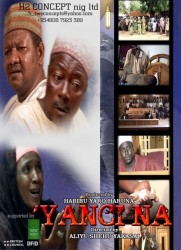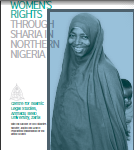 ‘Ooooh! That’s the wicked mother-in-law’. ‘And that’s the smooth talker, but who’s the other one? I’m sure I’ve seen him in one film or the other’. There were a lot of whispers as the actors and their friends walk into the hall. This must be a different turf for them. The actors were at the premiere of their film, but there were no screaming fans to welcome them, and no paparazzi. Instead there were Producers, Directors, Academics and a few of us novices with family members tagging along. The team involved in the making of this film was here to hear the critiques and also give support to each other. This was a premiere as well as a review. For me, it was perfect work-life balance, going to the cinema for ‘work’.
‘Ooooh! That’s the wicked mother-in-law’. ‘And that’s the smooth talker, but who’s the other one? I’m sure I’ve seen him in one film or the other’. There were a lot of whispers as the actors and their friends walk into the hall. This must be a different turf for them. The actors were at the premiere of their film, but there were no screaming fans to welcome them, and no paparazzi. Instead there were Producers, Directors, Academics and a few of us novices with family members tagging along. The team involved in the making of this film was here to hear the critiques and also give support to each other. This was a premiere as well as a review. For me, it was perfect work-life balance, going to the cinema for ‘work’.
It would seem odd that a DFID programme with a name like Security, Justice and Growth (SJG) would organise such an event, but they did. It also part funded the film Yanci Na (My Right). And not only this, DFID’s SJG programme supported 5 others like it.
Working in collaboration with the Kano State Directorate for Societal Reorientation and the British Council, SJG undertook the production of ‘home videos’, which are very popular in Northern Nigeria. These are films made in the major language, Hausa, mainly for viewing at home. As part of its work on 'Women’s Rights Under Shari’a (Muslim Law)' SJG supported a competitive process for developing film scripts and feature length films as 'edutainment'. The films aim at bringing a better understanding of women’s rights in Muslim Northern Nigeria. They depict how rights are violated, for example, in terms of denying girls education or issues relating to inheritance. The films not only portray the problems but also offer pointers as to the institutions that would bring redress to the victim – Law Courts, Community Law Centres, Mediation Centres and the like.
Back in the cinema hall the film was more than half way through and we all had an idea of how it would end. I was trying to scribble my lay person’s comments in the dim light – the film should draw attention to the different bodies responsible for redress not just the courts; film could be more real life and portray challenges of court procedures; film could tell the same story in a shorter time etc, etc. When the lights came up again there was such wide applause that I thought, there won’t be any place for my not so complimentary comments. When the floor was opened for comments however, it was as if a new crop of audience stepped in after all the clapping and those that clapped stepped out. There was probably more constructive criticism than an academic seminar would draw. The choice of actors, the length of scenes, even the quotes from Muslim Law books, were criticized.
 The SJG Women’s Rights project has scored many firsts in Northern Nigeria. Its flagship research project, Promoting Women’s Rights Under Islamic Law in Northern Nigeria (PDF) was a breakthrough in getting the diverse views on the topic aligned to a ‘common truth’. This is in the sense that it draws reference mainly from sources that no sect or faction could disagree with – the Qur’an and the Hadith. The research focused on identifying positive and negative practices and clarifying which are Islamic and which are Hausa traditions masquerading as Islamic.
The SJG Women’s Rights project has scored many firsts in Northern Nigeria. Its flagship research project, Promoting Women’s Rights Under Islamic Law in Northern Nigeria (PDF) was a breakthrough in getting the diverse views on the topic aligned to a ‘common truth’. This is in the sense that it draws reference mainly from sources that no sect or faction could disagree with – the Qur’an and the Hadith. The research focused on identifying positive and negative practices and clarifying which are Islamic and which are Hausa traditions masquerading as Islamic.
When I was called to make my observations, I made sure I had loads of positive things to say, before going to the points I listed. I praised the producer and actors who were brave enough to venture into an area that was not as popular as ‘romance’ (the main theme of our home videos). It takes true professionalism to put oneself in a position of such scrutiny. The film crew took a lot of the comments well. They were open in admitting to the changes they will be able to make and those that will not be possible within the budget and time frame. As the conversation started to turn pleasant and friendly again, I gave my husband the cue and we slipped quietly out of the hall to start the long trip home.

5 comments
Comment by Colette Poirier posted on
This sound like a very creative way to promote discussion on the important topic of womens rights. Good to hear that the work continues.
Comment by Sule Sale posted on
It is really encouraging. DFID and other NGO's should continue this and other efforts in collaboration with the Kano Government towards making Hausa films more "edutainment" than entertainment. Thanks to DFID for encouraging governance reforms in Kano State.
Comment by Benn (doshndollars) posted on
Interesting! I am happy to read that something this posetive is been done to uplift the lives of Nigeria Moslem women.
There should be follow ups, encouragement in place for women and re-education for the men because men seems to think from the head but women does it from the heart adding both together it brings robutness to better health, wealth and environments for the whole world.
Comment by Jamilu Garba posted on
DFID can make use of ICT tools to empower people to improve their outlook and opportunities. Now that computers in Hausa are available, everyone can start to make use of these tools to improve their social and economic lives.
Comment by Mustapha Saddiq posted on
Though I haven't watched the film,I believe it will be interesting and the right move at the right time . Surely, I will look for it and watch.